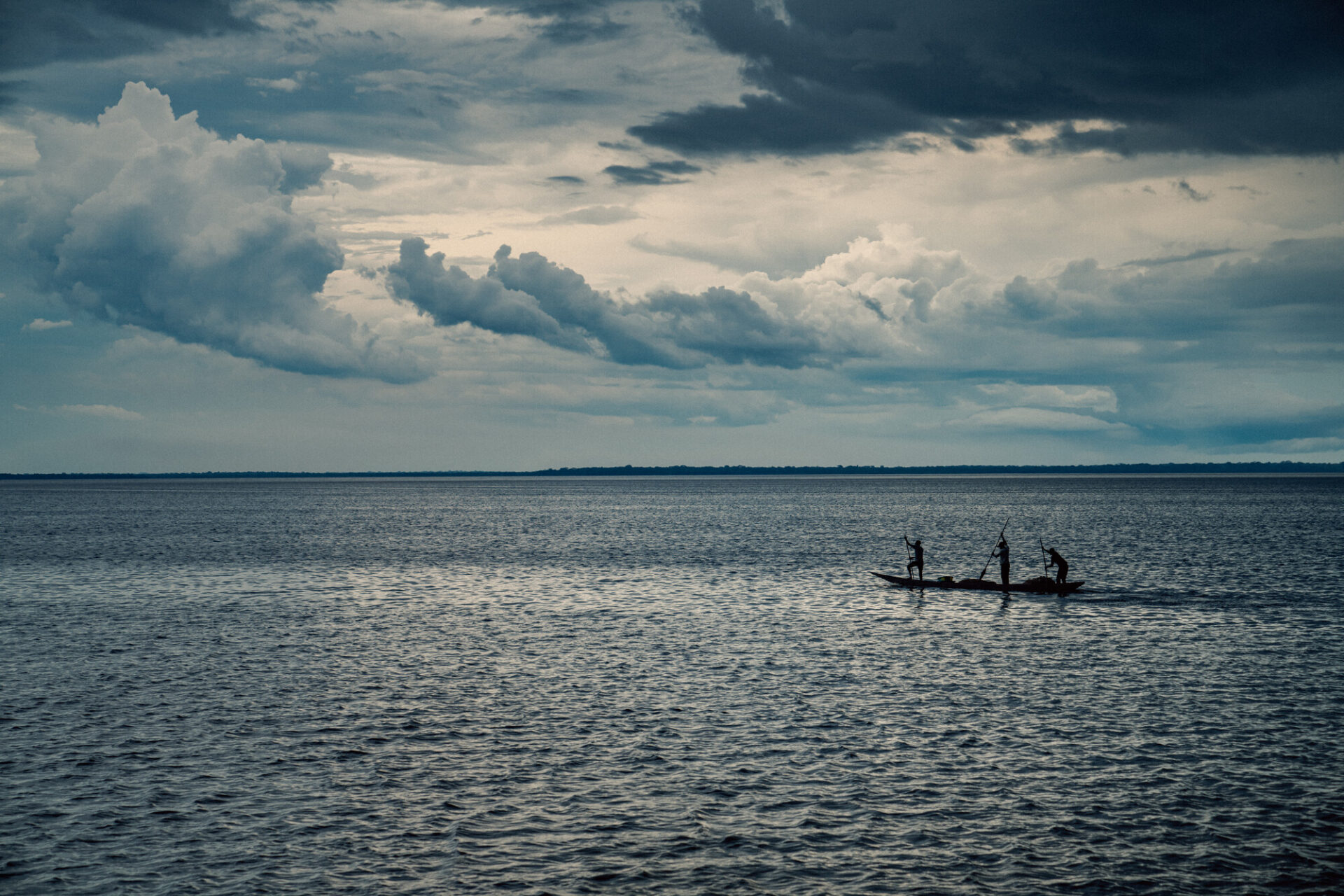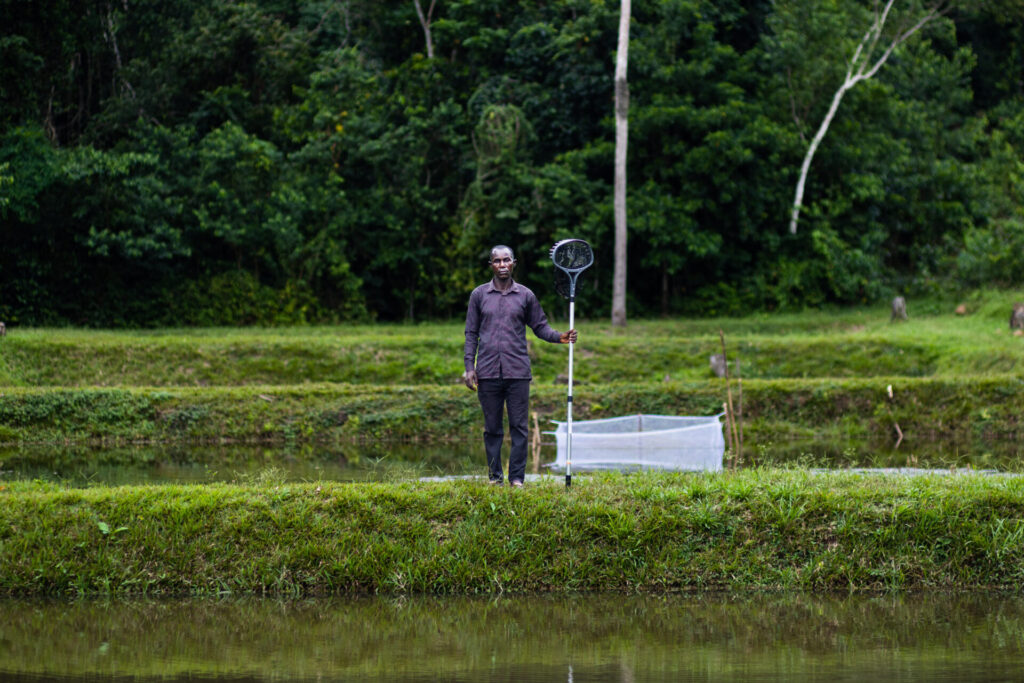The Mai Ndombe REDD+ Project, spanning 300,000 hectares along Lake Mai Ndombe’s shore, plays a crucial role in the province’s development. Once abundant with fish, overfishing and mosquito net use led to depletion. To counter this, Wildlife Works initiated a fish farming program with eight ponds, replenishing stocks and providing income.


The 300,000-hectare Mai Ndombe REDD+ Project lies on the shore of Lake Mai Ndombe. The lake plays a vital role in the development of Mai Ndombe province as it serves as the primary transportation route for cargo, linking the region to the rest of the country, and is an essential source of livelihood for the riverside communities.
For the lakeside communities, the lake not only provides water but also fish, which is a staple food in the area. However, while Lake Mai Ndombe is still filled with water, the same cannot be said about the fish that were once abundant and boosted the economy of many households. The story of the lake’s fish depletion is multifaceted, including overfishing practices and the widespread use of mosquito nets for fishing, each playing a significant role in the decline of fish stocks.
To address this challenge, Wildlife Works implemented a fish farming program through the agricultural intensification initiative, which includes eight ponds serving as a source of food and income generation for the community. The yield from these ponds is evenly distributed among households within the community.

“I am the caretaker of the fish nurseries. Through Wildlife Works, numerous benefits are brought to our community. This project initiated fish spawning, empowering community members to request fish for their own ponds.”
Jonas Isessy – Fishpond Caretaker
The fish farming program has not only replenished fish on people’s plates but also provided a life-changing solution for fishermen who previously risked their lives during stormy weather by fishing far from the shore. These ponds symbolize a substantial social impact, facilitated through the collaborative efforts of the Mai Ndombe REDD+ Project and local communities.
